Faculty-Student Inquisition Session
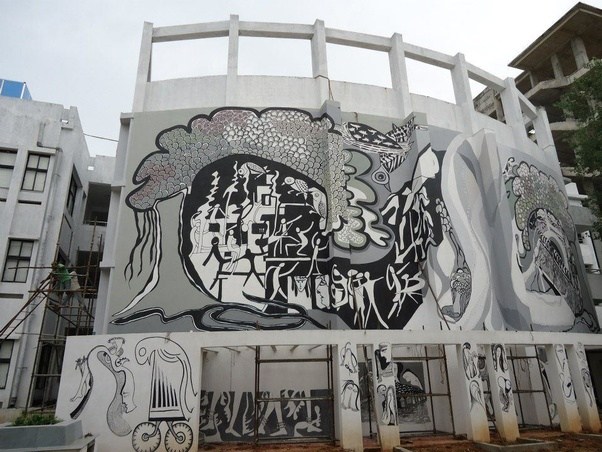
This article is part of The Newsletter, dated 18.04.2019
Sravani Boinepelli, Zubair Abid
The Issues Raised, and the Promises Made
On March 7th, a mail signed by a bit over half the UG2k17 batch was sent out to the faculty, highlighting concerns they had been facing with respect to the scheduling and overall load of academic work in the 2-2 Semester. The email cited instances of heavier workload, course workload-credit disparity, assignment redundancy, half semester courses spilling over into the other half, and terrible scheduling, among others. It spoke of the general mental health of the batch as well. A few follow-up emails were sent over the course of a month, pressing for the arrangement of an FSIS which was finally called on the 4th of April. A 1.5+ hour discussion ensued, covering a range of topics from matters raised in the mail to issues people were having with the Honours Application procedure.
The Dean of Academics responded to the complaints. She agreed with some of the points raised, and two things were promised:
- Better coordination and planning of courses at an Institute level, to be effective from the next (Monsoon 2019) semester
- A better way to manage half-semester courses (that often spilled over into the other half of the semester). Till date, the Institute had been giving the faculty a free hand for half semester courses, but after a meeting it was decided to enforce limiting the half semester courses strictly to their assigned half.
In response to the initial email sent by the batch, to deal with the problem of the excessive number of parallel assignments given at the same time, the professors had implemented an assignment deadline tracker sheet for the course instructors to coordinate better. The second years requested view access to this spreadsheet. The document was shared with the batch a day after the FSIS. Students were disappointed that a few assignments from a couple of subjects were missing from the sheet.
How effective the FSIS was is yet to be seen. While the Dean (A) promised changes, saying that the grievances raised had been acknowledged and were going to be looked at immediately, she also noted that it was too late into the semester for there to be any perceivable effect at the moment.
The Blame Game, Sleep Matters, and Other Controversies
The Dean had some questions and observations to make in return. Given the seemingly unanimous stance of the 2k17s, she expressed her surprise at the turnout relative to the batch strength (according to an unofficial count by the students there were 110–120 attendees out of a possible 200)1. She also wondered how time was actually being spent by the students – for all the complaints on the lack of time, it was entirely probable that people were just bad at managing it, or were taking on too much and consequently failing to space things out and prioritize efficiently. Prof. Rawat suggested adding to the assignments the number of expected hours to be spent on it so that the students could pace themselves accordingly.
The students agreed to the points she had raised, but claimed there existed a limit beyond which this fails as well. Upon reaching this limit, people have to sacrifice something. And it is usually not acads. Students should be able to have the time to pursue other activities as well without feeling the need to sacrifice something else. (Ultram)
The Dean Acads acknowledged that IIITians were held to high standards. After long, hard years of preparing for various entrance exams, the last thing they wanted was to continue living the JEE life whilst in college. But she insisted that, as students who had worked hard to get here, a high standard of work was expected of them. While she agreed that there should be better coordination/assessment between courses and promised that the situation would improve, she noted that the load will have to remain to maintain the name of the institute.
Faculty also held an impromptu poll to estimate sleep cycles, asking by a show of hands, how many people followed a fixed sleep schedule at night. They attributed the students’ increasing stress levels and reduced productivity to this. The students were advised to fix this as soon as possible as this would mess up the circadian rhythm of the body and the consequences of this would be severe.
Unexpected Information: 1st Sem Load limits and 85% Attendance
The FSIS did yield some interesting information regarding the functioning of the Institute. While discussing the concern of workload of the batch, the Dean and the Director mentioned that when it came to UG1, in the last 3-4 years, specific rules (like no more than 2 assignments at the same time/in the same week) had been implemented, at least in the first semester, to reduce pressure on them while they transitioned into a college environment. Whether this is put in practice or not is unclear as there have definitely been cases in the past two years where first years had 3, 4, or even 5 deadlines in the same week.
We also learnt a bit more about the attendance policy which is evidently frequently discussed in faculty meetings and has, as per the Dean (A), divided the faculty into two factions: one that wants to drop the attendance policy altogether and one that believes it prudent to reduce the percentage requirement but instead of getting a grade drop, the penalty would be that the student would no longer be allowed to write the exams. When asked if the attendance constraints could be reduced in order to prioritize workload, the Dean said that they would bring the matter up once again and a resolution will be made soon. There was also a suggestion made to send emails as soon as one gets a grade drop so that the student would be made aware of any discrepancies. The Dean responded, saying that mails have always been sent but were a bit delayed. Ping! contacted a few students who have had experience with such situations and we were told that they had actually never received any such emails or notices in the past.
Overvaluing Human Values? And a segue into Research Concerns
The matter of the amount of work being put into the Human Values course was brought up as well. HV, being a pass/fail, two credit course, shouldn’t demand so much workload in the form of written homework, projects, mid and end term exams. The question of how values itself could be evaluated was raised. Prof. Rawat replied that students are evaluated in terms of effort and thought and not the accuracy of the content. After the FSIS, the HV end exam was shortened from 3 hours to 90 minutes with the assurance that most of the questions would be disclosed prior to the exam so the students can think on their answers before giving the exam.
The students also accounted for a lot of their time being spent on researching various labs for their honors applications, requesting a more guided and detailed introduction to how the labs worked instead of the single session that gave only a cursory overview of some of the labs. Other issues regarding lab allocations were also brought into the open which can be read about in the last Newsletter’s (Dis)Honour-able Affairs article. The Dean (A) countered that the dual degree students should have figured out in their two years at college, which field they wanted to work in: particularly through events like the R&D showcase, their own research in their moments of spare time, and various interactions with seniors and faculty. “There are multiple data points available throughout the semester. They need to be used. The faculty cannot handhold students through all that exists”, she said.
Returning to the agenda: How did the workload ‘increase’?
A question that had been asked of the batch was that, given that it was the tenth batch with the same curriculum where professors had largely not changed, why was it that it was the first one to protest about workload? A lot of complaints had specified the current academic year as being more loaded than previous ones; the administration wanted to know the basis for these claims. Evidence was largely anecdotal, but a significant number of people raised the point about the frequency and randomly increasing difficulty of assignments.
It was clarified that the TAs were the ones who influenced (in at least one subject) the number and the level of difficulty of assignments. They were also accused of not contributing to students’ learning and understanding enough. Since most of the code for their previous assignments was already on github, the students believed the design of the assignments was changed randomly without a care for how it may increase the level of difficulty. Sometimes there is a dearth of resources and sometimes the students were given an entire boilerplate where one simply had to play around with the language at a high level without understanding what was actually happening at the grassroots. A lot of time before the assignment’s deadline goes into getting a feel for the new language/technology so students are unable to actually start the until very late. The students proposed conducting better tutorials, especially for undocumented languages. After completion of the assignment, chasing TAs for evaluation was another way students were losing time. People suggested that the evaluation slots be more realistic, coordinated and that the TAs should strive to stick to them strictly.
While the students agreed that removal of assignments was not an answer, they insisted that the assignments should be less repetitive and more representative of the subject, diverse so as to cover as many topics as possible.
Closing remarks
Prof PJN closed the session by trying to lay the concerns regarding lab selections to rest. He also advised the second years against taking up internships/research during the semester. “You don’t need GSoC/internships in your second year itself to get a good placement.” He also assured the students that their voices would be heard but reaction would not be immediate this late into the semester.

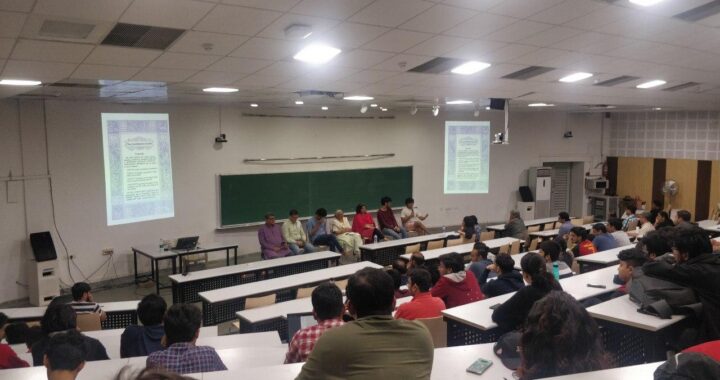 Covering the CAA-NRC Panel Discussion
Covering the CAA-NRC Panel Discussion 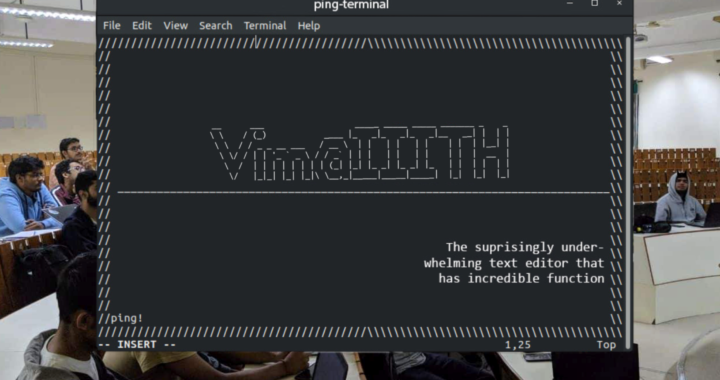 Vim Club has its first session !
Vim Club has its first session !  Hyderabad’s Water Shortage
Hyderabad’s Water Shortage  Interhouse Cricket Matches Underway
Interhouse Cricket Matches Underway  IIIT’s Area 51 Raid
IIIT’s Area 51 Raid 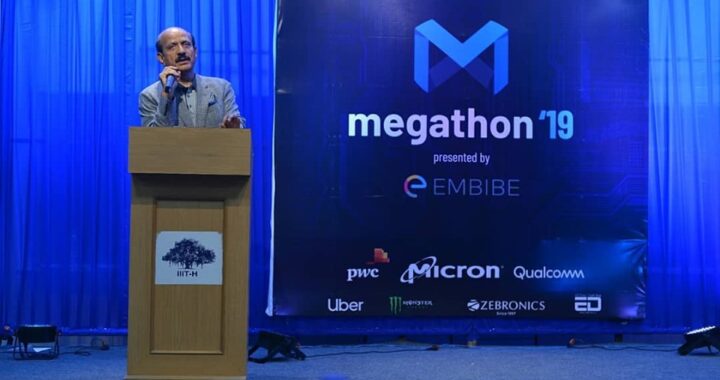 Megathon 2019
Megathon 2019  Mama, Put My GPTs in the Ground
Mama, Put My GPTs in the Ground 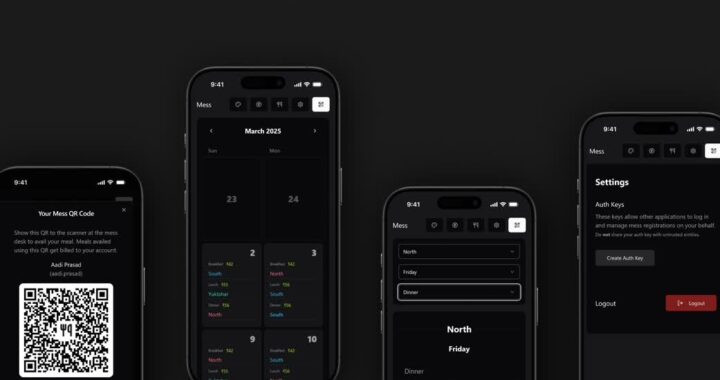 Have you tried turning the mess off and on again?
Have you tried turning the mess off and on again?  Log Kya Kahenge?
Log Kya Kahenge?  Can you hear the music?
Can you hear the music?
1 thought on “Faculty-Student Inquisition Session”
Comments are closed.